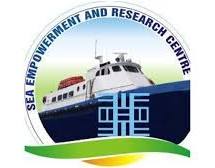Maritime
Policing Interference in Nigerian Ports: A Wound That Won’t Heal

BY EGUONO ODJEGBA
For years, Nigerian ports have been caught in a cycle of obstruction masquerading as enforcement. At the center of this dysfunction is the Maritime Police Command—an agency whose footprint has drifted far beyond its statutory lane, creating daily friction without delivering measurable outcomes. What should be a hub of trade facilitation has instead become a choke point of interference, intimidation, and opacity.
Constitutionally and legally, there is and has been a Port Police Command that addresses safety and security issues within and around the port corridor — covering port users, goods and properties. The additional establishment of the Maritime Police Command merely enabled overlapping of roles, and which complicates and does not serve any complementary role as often erroneously and ingeniously deposed to by official apologists.
Thus its so-called mandates and role overlap Nigeria Customs oversight: whether it has to do with trade facilitation, clearance control, and customs enforcement at ports. These are constitutionally and statutorily the remit of the Nigeria Customs Service, not the police.
Like the Port Police Command is tasked with crime prevention and public order within port corridors—not trade oversight, the Maritime Police Command according to its leadership is positioned as a maritime security interface. Whilst the ideological framework is gleefully espoused as maritime security interface, in practice, it has intruded into cargo clearance, issuing detention orders and alerts — clearly outside its remit.
The Nigerian Shippers Council (NSC) has repeatedly flagged this overreach, citing unauthorized police letters, intimidation of port personnel, and detention of duly cleared cargo. Even the AIG Maritime had to issue a directive in December 2018 instructing stakeholders to disregard police correspondence not signed by him—a tacit admission of systemic misuse.
The patterns of interference are as confusing as they are deceptive:
-Detention orders as leverage: Cargo already cleared by Customs is blocked at terminals under vague claims of “intelligence.”
-Unauthorized correspondence: A flood of letters from unapproved officers became tools of disruption.
-Human-factor choke points: NSC investigations link prolonged dwell times directly to police interference, worsening congestion at port gates.
The impact of these on efficiency and trust can be better imagined than said. Like the NSC said while recently advocating the dismantling of policing interference in port operations, these unwholesome activities has quadrupled cargo dwell time. While Singapore clears containers in 6 hours and Lome in 7 days, Nigerian ports average 21 days or more—drag traced to police detentions.
Each day of such delay piles up demurrage and storage charges, a factor that is transferred to the consumers and ultimately inflating the cost of doing business.

Ease of doing business is also conclusively a victim as discretionary police interventions erode Nigeria’s competitiveness, and systematically, pushing cargo traffic to neighboring ports.
It is needless to say that the contrast is glaring. While the Port Police Command reports tangible law enforcement outcomes—103 suspects across 57 cases in Q1 2024—the Maritime Command’s gate-level interference yields no transparent arrests or prosecutions.
This is despite constant interventions, yet the Maritime Police Command has no public record of prosecutions tied to port-trade offenses. Conversely, the scenario has thrown up the embarrassing issue of un-receipted penalties. The check list is unending and numerous — as importers report shadow fines and off-the-books collections, eroding trust and fueling allegations of rent-seeking.
At a recent workshop, even Maritime Police leadership reportedly admitted overlapping functions, unregulated checkpoints, with extortion plaguing the corridors.
While the Nigerian police is smart and intellectually inclined, it is not unaware that its official trespass into the Nigeria Customs territory is unconstitutional. Like every organized crime, this maritime policing thrives on barefaced rascality. Cargo clearance is Customs’ exclusive domain. Police cannot override duly cleared cargo without criminal predicate and due process.
It is instructive that the Port Police Command is the recognised unit for criminal policing: investigating theft, forgery, and smuggling conspiracies: not trade clearance.
According to the NSC findings, there has been due process failure on the part of the Port Police Command. While legitimate enforcement requires documented intelligence, lawful orders, and transparent case outcomes, the NSC records show the opposite.
Sadly, while the menace has gone on for so long a time, even government from the presidency downwards to the last organ of governance, has shied away from fixing the rot.
Perhaps, the malaise goes beyond the so-called lack of political will into the endemic nature of our collective complicity. Regardless, the onus lies on this government which came in with bold statements to reset the dysfunction national systems.
This government must therefore recognize the single-window gate authority, with Customs as sole clearance authority; where police involvement is limited to co-signed incident notes.
And yet, in spite of its opaque nature and job description, federal sister institutions like the Nigerian Ports Authority, the Nigerian Maritime Administration and Safety Agency, the Nigerian Shippers’ Council, Nigeria Customs Service, among others, throws their doors open for so-called synergy and collaboration. It is instructive that this sort of indulgence in blind and unholy alliances has also been responsible for the promotion of nonsensical, mushroom, so-called enforcement departments of freight forwarding associations; masquerading and marauding as quasi enforcement organs, all over the place. These questionable bodies even have the temerity of engaging with the above listed agencies of government; a development that has effectively turned the table, with the consequence that the regulated has become the regulator.
It is only possible in a banana nation where national institutions and their leadership have fallen asleep from drinking themselves to stupor; apparently from fatigue borne out of overdose of official compromise; producing a situation where the mice now checkmate the house cats, as it were.
Since we are a shameless nation and people, to continue the unconstitutional trespass, the Maritime Police Command must subscribe to work tools such as detention order registry — public, digital registry with legal basis, signatory, and expiry rules.





























